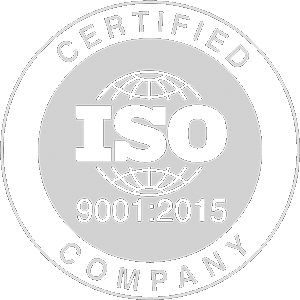Gemini offers industry standard low flow compounds, as well as customized blends. We can meet your needs.
Don’t see what you need? Call Gemini, and we can custom blend to your desired spec.
Glass Filled Compounds
Glass fiber is the most common filler compounded with PTFE resin. These compounds exhibit great dielectric properties, chemical resistance, and greatly reducing creep.
| 95% Virgin PTFE | 5% Glass Fiber |
| 85% Virgin PTFE | 15% Glass Fiber |
| 75% Virgin PTFE | 25% Glass Fiber |
| 60% Virgin PTFE | 40% Glass Fiber |
Carbon Filled Compounds
Carbon blends offer much less abrasiveness compared to glass, as well as higher impact strength in mechanical applications. They also perform well in electrical and thermal insulation environments while greatly retaining hardness.
| 90% Virgin PTFE | 10% Carbon |
| 85% Virgin PTFE | 15% Carbon |
| 75% Virgin PTFE | 25% Carbon |
Graphite Filled Compounds
Graphite adds extra lubricity to an already slick PTFE while keeping chemically inert. Wear resistance and a low coefficient of friction help graphite excel as a PTFE filler.
| 95% Virgin PTFE | 5% Graphite |
| 90% Virgin PTFE | 10% Graphite |
| 85% Virgin PTFE | 15% Graphite |
| 75% Virgin PTFE | 25% Graphite |
Carbon/Graphite Filled Compounds
Carbon/Graphite blends excel in chemical and mechanical applications. They add strengthening physicals while adding reduction to initial wear. Displaying high load carrying capabilities in abrasive contact applications carbon/graphite compounds also have a very high hardness.
| 75% Virgin PTFE | 23% Carbon | 2% Graphite |
| 70% Virgin PTFE | 15% Carbon | 15% Graphite |
| 67% Virgin PTFE | 30% Carbon | 3% Graphite |
Bronze Filled Compounds
Bronze excels in adding higher compressive strength, higher thermal conductivity, and lowers creep. There are several different percentages of bronze that can be added to PTFE to gain these abilities, but bronze is not recommended for high corrosive, or electrical conditions.
| 60% Virgin PTFE | 40% Bronze |
| 40% Virgin PTFE | 60% Bronze |
Molybdenum Filled Compounds
Molybdenum or “moly” is almost always used with other fillers, primarily glass or bronze. Additional lubricity, hardness, compression, and wear resistance make Molybdenum a very useful filler.
| 95% Virgin PTFE | 5% Molybdenum | |
| 75% Virgin PTFE | 5% Carbon | 5% Molybdenum |
| 60% Virgin PTFE | 15% Glass Fiber | 5% Molybdenum |
| 40% Virgin PTFE | 55% Bronze | 5% Molybdenum |
Stainless Steel Filled Compounds
Stainless steel filled PTFE increases overall strength. High-temperature application such as hot liquids or steam makes this filler an excellent choice for the food and drink industry.
| 50% Virgin PTFE | 50% Stainless Steel (316L) |
Polyimide Filled Compounds
Polyimide is a synthetic polymer that is non-abrasive and performs excellently in dry running applications. Start-stop or softer surfaces like aluminum, brass, or other plastics are a good match for polyimide filled compounds.
| 85% Virgin PTFE | 15% Polyimide |
Pigmented Filled Compounds
Pigmented Compounds are a great way to visually separate PTFE parts.
